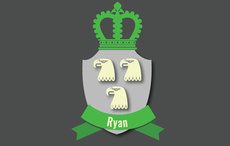The story that unfolds in this remarkable book, Brian Friel: Theatre and Politics by Anthony Roche, is the artistic life of a man of uncompromising standards, incredible courage and restless inquiry.
One of Roche’s great achievements lies in demonstrating that the seeming fragmentation of Friel’s body of work, as measured by the varied forms he has explored, actually contains a remarkable coherence when examined from the standpoint of how form is integrally related to idea in each of the individual plays. And what a bracing conspectus of ideas these are as a reflection on modern Ireland by a playwright who is also a subtle and persuasive thinker.
Rare among contemporary academics, Roche’s writing is as readable as it is incisive. What he has done for the first time is to examine the intention of each of Friel’s plays within the biographical and historical context that originally inspired them. But he has also succeeded in something even rarer, and that is to demonstrate how the plays deserve to be staged so as to realize in minute detail their extraordinary dramatic potential. As I read Roche’s book, I found myself saying: “That’s what’s really going on here. How exciting. How moving. How inspiring and meaningful to anyone who cares about the art of theater and its potential to impact upon our lives both privately and as responsible citizens of the world.”
From a dramaturgical standpoint, Friel’s breakthrough with Philadelphia, Here I Come (1964) was to subvert the kitchen-sink naturalism of the Abbey Theatre style that had dominated Irish drama ever since the death of Yeats in 1939. He did this by combining wonderfully compelling characters with avant-garde theatrical techniques borrowed from European theater – a method that, as Roche demonstrates, he was to follow throughout his career.
In Philadelphia, Friel captured the desolation and distress of that archetypal experience of familial and national loss. The inability of Gar O’Donnell to penetrate the implacable silence of his widowed father, even as they both long for a mutual understanding and love, was almost unbearable to witness. And yet, even through the muffled sobs that filled the theater, the audience was never allowed to wallow in a self-indulgent bathos. Instead, Friel evoked a far more complex response by having the figure of Gar portrayed by two actors representing his inner and outer self. This opened up the character and the play itself into a wide range of deeply layered perspectives on the real subjects that concerned the playwright: the complex and contradictory nature of human identity; memory as a flawed prism in trying to explain how and why we act the way we do; and the difficulty of achieving either personal autonomy or self-realization within an Irish landscape described by Friel as “inbred and claustrophobic.”
Friel was fortunate in having his first major professional production directed by Hilton Edwards, the legendary founder of the Dublin Gate Theatre, who was in the twilight of his career, but whose mastery of stagecraft was still unsurpassed by anyone else working in Irish theater. Edwards’ production was a tour de force in which acting, choreography, sound and lighting all combined to create a world of continually shifting shades of meaning. I particularly recall the ease with which the comic vaudeville routines of Private and Public Gar moved in and out of more natural exchanges between them, almost as if they were different modulations in an exquisite piece of chamber music.
Also the ways in which the different planes of the set – Gar’s bedroom as a realm of fantasy; the stifling kitchen where his father sat stiff, taciturn, and absolute; and the forestage with its directly performative connection with the audience – were each employed so as to establish what Roche calls “a fluid psychological space” that not only challenged the conventions of all-too-familiar naturalistic settings but expanded the intellectual and imaginative horizons of the spectators.
Such a creatively adventurous use of the theatrical arts requires interpretive artists with an equivalent sensibility. In Edwards, Friel was blessed with such a creative partner. Unfortunately, as Roche makes clear, that was not always the case, and there have been some ill-conceived productions that have damaged Friel’s reputation beyond Ireland. Such a career inevitably carries its ups and downs.
Broadway successes like Dancing at Lughnasa were followed by a production of the philosophically dense and provocative Wonderful Tennessee (1993) that closed after only nine performances. Always, however, Friel has refused to be content with replicating what he has already achieved. Over and over again, he has challenged himself and his audiences, not to mention the critics and theater artists charged with interpreting his work, by resolving, as he once put it, “to start again and then to start again.” Indeed, he remarked, quoting Graham Greene, at the ceremony in which Dancing at Lughnasa was named the best play of the 1993 London theater season, “Success is merely the postponement of failure.”
Roche shows us that Friel, like Yeats and Beckett, has cast off what he calls “the threadbare devices of realism” in order to address the fragility of human existence within a wide range of differing circumstances. Also like them, he has rooted his art in a loving respect for the art of acting as a supreme reflection of humanity in all its greatness and grief. According to Roche, Yeats is much on Friel’s mind as, in his eighties, he looks back on his life’s work and asks, as Yeats did in his late poem, “The Choice,” whether it will live after him and continue to find renewed meaning:
The intellect of man is forced to choose
Perfection of the life, or of the work,
And if it is to take the second must
refuse
A heavenly mansion, raging in the dark.
With unflinching honesty, Friel confesses that “I never considered the life all that important. I gave myself to the perfection of the work. Did I do wrong?”
His own answer to that question is perhaps best given in the words of Lily Matthews, a character in Freedom of the City (1973), Friel’s powerful indictment of the massacre of Bloody Sunday, who at the moment of her death recognizes that:
Life had eluded me because never once in my forty-three years had an experience, an event, even a small unimportant happening been isolated, and assessed, and articulated.
As Roche demonstrates, no artist since Yeats has dealt more comprehensively than Friel with the entire historical experience of Ireland. What Roche also conveys with thoughtfulness and insight on every page of his book is how stunning Friel’s achievement is when understood as a manifestation of a deeply committed political consciousness expressed through that most demanding of art forms, the living theater.
For Friel the “political element” is always present, although he has always taken pains to avoid expressing that in the overt polemics demanded by some of his most aggressive critics, especially at the height of the Northern Irish Troubles.
I once had the opportunity to catch a personal glimpse of Friel’s attitude in that regard during a conversation we had about the nineteenth century Irish poet and songwriter Thomas Moore. The occasion was an opening night party celebrating the return to the Abbey Theatre of Dancing at Lughnasa following its triumphant reception in London. I had just released a recording of the Irish Melodies of Moore, and friends of mine in the cast told me how much Friel admired it. Suddenly I found the master at my side asking me to sing for him.
After my performance in the beautiful drawing room of Noel Pearson, the producer of Lugnasa who was about to bring it to Broadway, Friel talked to me about Moore. “What I love about him,” he said, “is the way his politics is subsumed within his artistry.” The same, of course, could be said about Friel himself.
For years to come, this remarkable study by Anthony Roche will be a must for any producer, director, dramaturg, teacher or lover of Irish theater who would truly understand and honor Friel’s genius.
James W. Flannery is the Winship Professor of the Arts and Humanities at Emory University. From 1989 to 1993, he was the Executive Director of the Yeats International Theatre Festival at the Abbey Theatre.




Comments